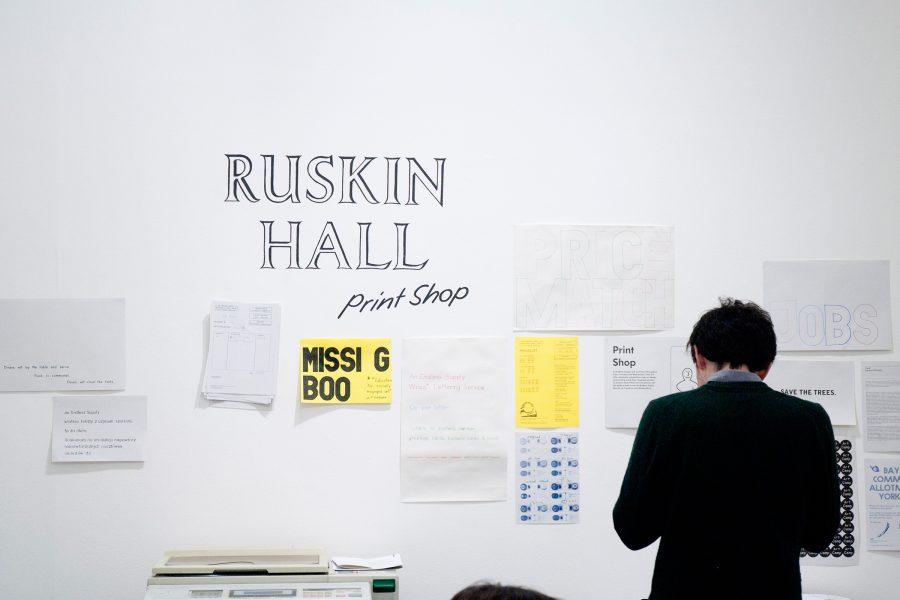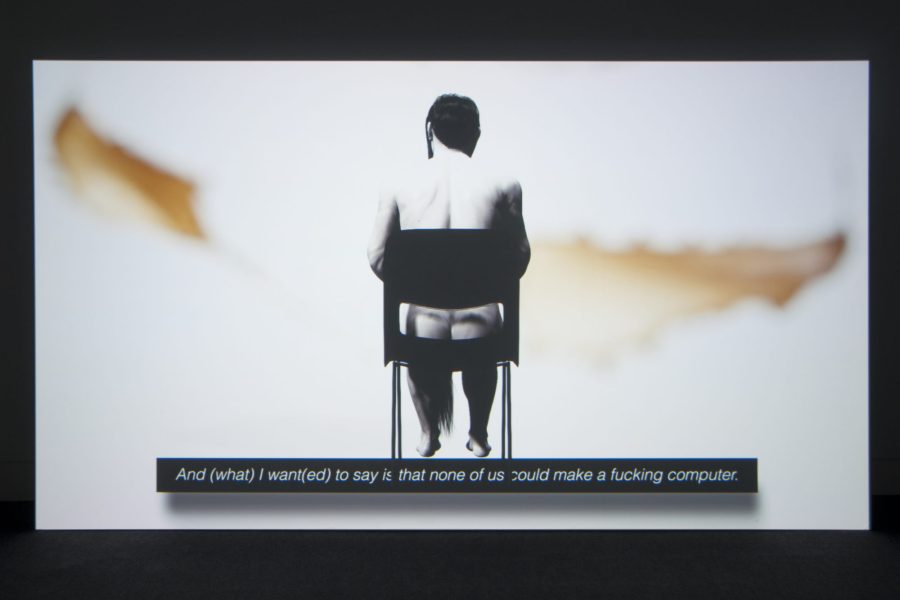‘I don’t want to hear any news on the radio about the weather on the weekend… Talk about THAT.’
This line from Ed Atkins’ Warm, Warm, Warm Spring Mouths (2013) has been haunting me.
The rhythm (almost iambic), the delivery (so confrontational), the imperative (addressed to whom?)
The radio, the weather, the weekend; symbols of universality, spaces of communality – or clichés of polite ‘chitchat’? As Oscar Wilde scathingly remarked, ‘conversation about the weather is the last refuge of the unimaginative’.
If the radio is not to spout news about the weather on the weekend, then what?
Floating in the middle of the line is the word ‘news’, a measured monosyllable that seems stranger the more you think about it. A plural of ‘new’, the product of the now, a commodity crafted from currency.
Politics seems to lurk beneath a surface that is all artifice; all weather and weekend.
These thoughts led me to Maurice Blanchot, a writer often cited by Atkins.
‘How many people turn on the radio and leave the room, satisfied with this distant and sufficient noise? Is this absurd?
Not in the least. What is essential is not that one particular person speak and another hear, but that, with no one in particular speaking and no one in particular listening, there should nonetheless be speech, and a kind of undefined promise to communicate, guaranteed by the incessant coming and going of solitary words.
One can say that in this attempt to recapture it at its own level, the everyday loses any power to reach us, it is no longer what is lived, but what can be seen or what shows itself, spectacle and description, without any active relation whatsoever…
We are no longer burdened by events, as soon as we behold their image with an interested, then simply curious, then empty but fascinated look. What good is it taking part in street demonstrations, since at the same moment, secure and at rest, we are at the demonstration itself, thanks to a television set?
Here, produced-reproduced, offering itself to our view in its totality, it allows us to believe that it takes place only so that we might be its superior witness.’ [1]
[1] Maurice Blanchot, ‘L’Homme de la rue’ in Nouvelle revue francaise, no. 114 (Paris, June 1962)

